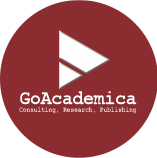THE ROLE OF SHARIA BANKING ON MSMEs THAT IMPLIED ON INDONESIAN ECONOMIC GROWTH
DOI:
https://doi.org/10.15575/jim.v3i1.19557Keywords:
Islamic Banking, MSMEs, Indonesian economy.Abstract
This is a descriptive qualitative study that employs secondary material acquired from a variety of sources in the form of theories, reports, research findings, and so on. The goal of this study is to examine the influence of Islamic banking in MSMEs in the growth of the Indonesian economy. The years 1997 and 1998 saw terrible economic conditions; nonetheless, only the MSME sector (micro, small, and medium companies) was able to recover and grow after the crisis. The number of micro, small, and medium-sized enterprises (MSMEs) does not drop, but rather increases. One of the key goals of Sharia banking projects in the country's economic development process is the supply of capital through micro, small, and medium firms. Along with the Indonesian government's emphasis on the development of micro, small, and medium-sized firms (MSMEs), the Islamic banking industry helps to the empowerment of these MSMEs, which will eventually progress economic sectors and boost economic growth.
Â
References
Amah, N. (2013). Islamic Banks and MSMEs in Driving the Wheel of the Indonesian Economy: A Study of the Literature. Assets: Journal of Accounting and Education, 2(1), 48.
Antonio, M. S. (2001). Islamic Banks: From Theory to Practice. Human Echo.
Ashira, A. (2020). Development and Challenge Sharia Banks in the Middle East. International Journal of Science and Society, 2(1), 62 - 72.
Bismala, L. (2016). Model Manajemen Usaha Mikro Kecil dan Menengah (UMKM) untuk Meningkatkan Efektivitas Usaha Kecil Menengah. Jurnal Entrepreneur dan Entrepreneurship, 5(1), 19-26.
Damanhuri, D. S., & Findi, M. (2014). Masalah Dan Kebijakan Pembangunan Ekonomi Indonesia. PT Penerbit IPB Press.
Sari, A. L. (2020). The COVID-19 Pandemic and Distance Learning: Challenges for Students at Colleges in Indonesia. ITALIENISCH, 10(2), 11-23.
Ihani, W., Syofya, H., Sari, A. L., Mulawarman, W. G., & Sriyanto, S. (2020). The Role of the Creative Industry in Economic Development. Journal of Environmental Treatment Techniques, 8(1), 268-271.
Ishak, D., & Chotim, E. R. (2018). Kebijakan Bandung Transit Area (BTA) Untuk Peningkatan Kunjungan Wisata. TEMALI: Jurnal Pembangunan Sosial, 1(1), 33-57.
Ozdemir, M., Sari, A. L., & Irwandi, I. (2021). The Influence of Motivation, Financial Literacy, and Social Media Financial Platforms on Student Investment Interest. Komitmen: Jurnal Ilmiah Manajemen, 2(2), 68-82.
Basem, Z. ., Zulher, Yusril, M. ., & Pangestika, N. D. (2022). Analysis of Discipline, Organizational Commitment, Work Environment and Their Effect on Employee Performance PT. Adhiyasa Bangkinang. INFLUENCE: International Journal of Science Review, 4(2), 11–22. https://doi.org/10.54783/influencejournal.v4i2.28
Subroto, W. (2022). PERLUNYA KEADILAN RESTORATIF DALAM SISTIM PERADILAN ANAK TERHADAP KENAKALAN REMAJA. Jurnal Kelola: Jurnal Ilmu Sosial, 5(1), 23-30.
Gennusi, R. S. A., & Maharani, N. K. (2021). The Effect of Investment Opportunity Set, Lagged Dividend and Managerial Ownership on Dividend Policy. PAPATUNG: Jurnal Ilmu Administrasi Publik, Pemerintahan Dan Politik, 4(1), 112-120.
Chotim, E. E. (2020). Kesetaraan Gender Dan Pemberdayaan Perempuan Di Indonesia: Keinginan Dan Keniscayaan Pendekatan Pragmatis (Studi Terhadap Ukm Cirebon Home Made). AKSELERASI: Jurnal Ilmiah Nasional, 2(1), 70-82.
Nurjaman, K. (2022). Pemberdayaan E-Commerce di Kalangan Pelaku UMKM di Indonesia. Jurnal Abdimas Peradaban, 3(1), 34-40.
Efendi, S., & Rahardja, E. (2021). The role of intellectual capital, intrinsic motivation, and competence on service performance: Empirical Studies at Jakarta private universities. International Journal of Science and Society, 3(3), 170-185.
Harrison, P., et. al. (1999). Finance and Growth: Theory and New Evidence. Federal Reserve Board Finance and Economics Discussion Paper, 35.
Hasyim, L. T. U. (2016). Peran Perbankan Syariah Terhadap Pertumbuhan Ekonomi Sektor Riil Di Indonesia. AKRUAL: Jurnal Akuntansi, 8(1), 11-27.
Indonesian, BPS. (2010). Central Bureau of Statistics.
Komara, B. D., Setiawan, H. C. B., & Kurniawan, A. (2020). Jalan Terjal UMKM dan Pedagang Kecil Bertahan di Tengah Pandemi Covid-19 dan Ancaman Krisis Ekonomi Global. Jurnal Manajemen Bisnis, 17(3), 342-359.
Linda Tamim Umairoh. (2016). The Role of Islamic Banking on Real Sector Economic Growth in Indonesia. ACCRUALS Journal of Accounting, 8(7), 11–27.
Mandiri Syariah Bank. (n.d.). Mandiri Syariah Bank. www.mandirisyariah.co.id
Muheramtohadi, S. (2017). The Role of Islamic Financial Institutions in Empowering MSMEs in Indonesia. MUQTASID Journal of Islamic Banking and Economics, 8(1), 95. https://doi.org/10.18326/muqtasid.v8i1.95-113
Muktar, B. (2016). Bank dan Lembaga Keuangan Lain. Prenada Media.
Prawoto, N. (2009). Dapatkah Bantuan Luar Negeri Mendorong Pertumbuhan Ekonomi?. Unisia, 32(72).
Putri, E. H. (2017). Efektivitas Pelaksanaan Program Pengembangan Usaha Mikro Kecil Dan Menengah (UMKM) Di Kota Samarinda (Studi Pada Dinas Koperasi Dan UMKM Kota Samarinda). EJournal Administrasi Negara, 5(1), 5431-5445.
Sari, V. F. (2022). Peranan Perbankan Syari’ah Dalam Mendorong Usaha Kecil Dan Menengah. Jurnal Riset Ekonomi Islam, 40-50.
Solihin, A. I. (2008). This is you, Islamic Bank. Peace be upon you.
Suci, Y. R. (2017). The development of MSMEs (Micro, Small and Medium Enterprises) in Indonesia. Scientific Journal of the Faculty of Economics, 6(1), 51–58.
Zulkarnaen, W., Sasangka, I., Sukirman, D., Yuniati, & Rahadian, F. (2020). Harmonization of sharia rules in effort copyright protection in Indonesia. Journal of Advanced Research in Dynamical and Control Systems, 12(2), 2612–2616. https://doi.org/10.5373/JARDCS/V12I2/S20201311
Downloads
Published
How to Cite
Issue
Section
Citation Check
License

This work is licensed under a Creative Commons Attribution-ShareAlike 4.0 International License.













